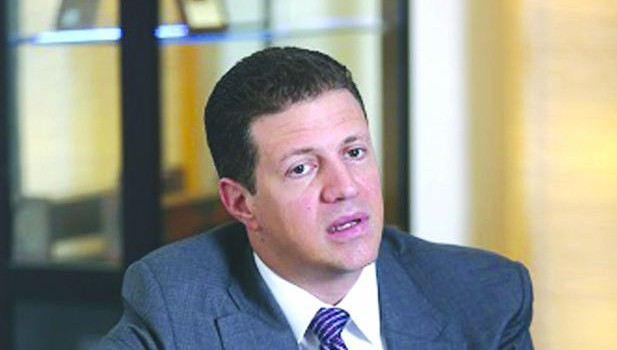In an interview with Asharq Al-Awsat, Jafar expressed that Dana Gas saw real opportunities in Iraq and Egypt, and found cooperation between the parties beneficial to both Dana Gas and the countries themselves. The details of the interview:
Asharq Al-Awsat: The events of the Arab Spring altered the condition of oil exports from Arab countries. What is your assessment of the current and future state of the Arab energy map?
Majid Jafar: Political events have surely led to some changes in this regard, particularly in Libya given that it is a key oil exporter, but less so in Yemen, Tunisia, Syria, and Egypt. However, the overall import/export levels of these countries remain limited in the context of the global trade platform for energy and prices were better maintained before the said events.
Q: How is Dana Gas dealing with its projects in Iraq and Egypt given the current situation? Are there investment plans in other areas?
Dana Gas has found real opportunities in Iraq and Egypt that will benefit both the company and the country and its people. In Iraq, the company was able to extract natural gas efficiently, and this contributed to electricity generation and consistent supply to the Kurdistan region of Iraq. This leads to stability, economic growth, and social welfare, and region has become attractive for investment.
In Egypt, the efforts of Dana Gas have culminated into lifting production capacity of natural gas. The volume of production amounted to 39,000 barrels of oil per day in 2013, which includes 190 million cubic feet of gas and about 8,500 barrels of liquids daily. In addition to this, 25 new fields are being explored given the large investments by the company in Egypt which exceeded USD 1.8 billion, which will bode positively on the economy.
Q: According to sources, Dana Gas wishes to enlist itself on the London Stock Exchange, is this correct? If so, when will this occur?
We as the managing board are examining these options. London’s stock market includes transactions of larger sizes where investor companies can predict the pattern and trend of a company better, such as in the energy sector that includes “Dana Gas”. We expect there will be a fair assessment of the value of the stock on the one hand, and institutions that offer global investment analysis and readings regarding the direction of their companies which will offer a better picture of the reality of said companies.
Q: The Dana Gas shares witnessed a big drop in their value. What measures are being taken to improve the value of this stock?
We believe that the value of the stock in the market does not match the reality of the company and its performance. The company is achieving very good results with net profit in the past year increasing by 20 percent to reach AED 605 million (USD 164 million). The total assets of the company have increased to AED 12.8 billion (USD 3.5 million) and the average net production volume is equivalent to 60 thousand barrels of oil per day with significant opportunities for future growth. But limited trade in capital markets in the region and the effect of the global economic crisis have effect a large number of companies and not just Dana Gas. With these, we have seen clear efforts leading to an increase of almost 30 percent in the price of the stock since the beginning of this year and we hope for the return of full wellness to the Arab capital markets soon. We are also currently working on developing our assets and consolidating relationships and communication with investors.
Q: How do you find investment climate in the Kurdistan region of Iraq?
Some nicknames we have been hearing for Kurdistan are “Dubai’s sister” or “The Dubai of Iraq” which indicates that investors are optimistic about the region. The area has managed to place its name on the list of areas attracting investment with its international universities, hotel districts, regional and international companies, real estate and development projects, all of which contribute to an economic boom.
Q: What is the impact of shale gas exploration on the future of the energy production sector in the region?
These explorations certainly have an impact but not a great one at the moment. Despite these developments, oil prices continue to somewhat maintain the same level in the past few years and our region still owns around 60 percent of total global oil reserves and 40 percent of natural gas reserves. These developments do, however, demand that oil-producing nations revise their productivity strategies according to long-term plans in conjunction with the demands of the global markets and not based on political dimensions. The rock explorations, that began in the United States, may be extended to include other countries such as China and even Arab countries like Algeria and Saudi Arabia.

